A Species of the Australian Nocturnal Ground Parrots Thought to Be Extinct for Over 100 Years Was Found by One Man After 15 Years of Searching
The Australian Night Parrot was first rediscovered in 2013 by naturalist John Young after nearly a century of being thought to be extinct. Young continued to search for the elusive nocturnal birds after making the initial discovery, and his efforts were recently rewarded with the discovery of another group in Diamantina National Park.
Young, who was in charge of a field team of scientists from the Queensland Parks and Wildlife Service and the Australian Wildlife Conservancy, recorded the calls of seven additional night parrots and reported seven separate sightings of them, including three active nests with eggs, a pair of parrots, and recorded sightings of three more. The Night Parrot's range and known population have considerably expanded as a result of this discovery.
The nocturnal and secretive lifestyle of night parrots is a significant part of the mystery surrounding them. Only the dry and semi-arid regions of Australia are home to medium-sized birds, which hop around the moonlit landscape like kangaroos.
With their camouflaged plumage, they can be challenging to spot during the day as they blend into the dense, spiky vegetation. Prior to his 2013 discovery, Young spent 15 years searching grasslands and scrubs for the enigmatic bird.
He discovered the new population in a different region of Queensland than the previous one.
More info: Reddit, audubon.org
Redditor u/FT05-biggoye shares an interesting piece of information with the TodayILearned subreddit community
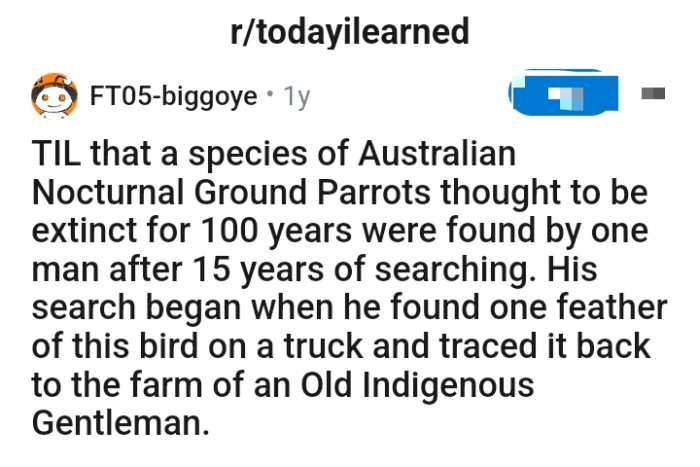
A species of the Australian Nocturnal Ground Parrots
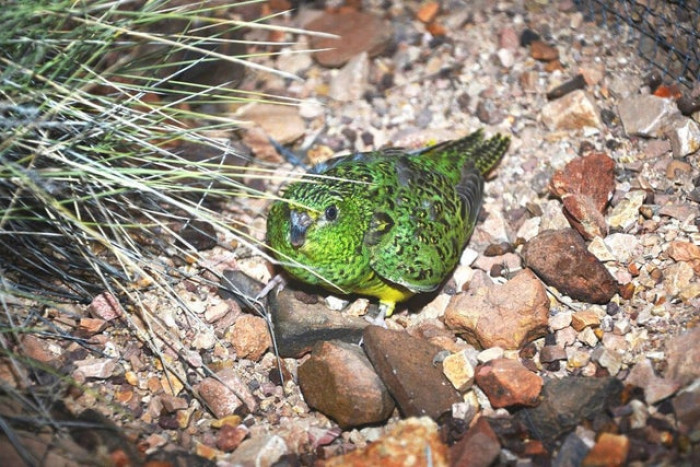
Additionally, a large portion of Diamantina National Park has the kind of roosting habitat that night parrots prefer, according to the AWC model. Protecting the known populations is of the utmost importance, though efforts to find additional populations will continue.
Here is what redditors had to chirp about the discovery.
Do they look everywhere?

Rediscovery and Conservation Psychology
The rediscovery of a species thought to be extinct highlights the importance of conservation psychology, which examines the emotional and psychological factors influencing conservation efforts. Research indicates that emotional connections to wildlife can significantly impact public support for conservation initiatives.
Understanding these connections can motivate individuals and communities to engage in efforts aimed at protecting endangered species and their habitats.
Giving the guy a lot of credit

What the bird's eyes say

This Redditor took a class on identifying birds
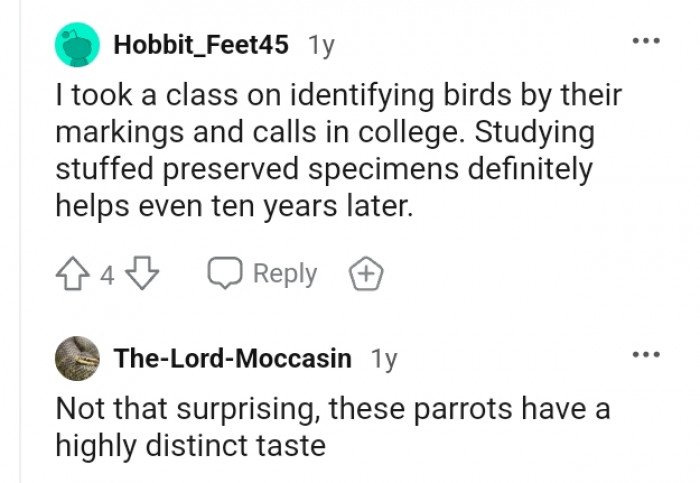
This rediscovery also emphasizes the role of persistence and hope in conservation efforts. Studies in environmental psychology suggest that narratives of hope and success can inspire collective action and foster resilience in the face of ecological challenges.
Highlighting success stories can galvanize communities, encouraging a proactive approach to conservation.
You've capitalized Old Indigenous Gentleman

The bird survived all the wildfires

They all moved to New Zealand

The Psychological Impact of Extinction
The emotional response to species extinction reflects a broader psychological phenomenon known as eco-anxiety. Research indicates that concerns about biodiversity loss can lead to feelings of helplessness and anxiety in individuals, particularly among young people.
Addressing these feelings through educational initiatives can empower individuals to take action and feel a sense of agency in conservation efforts.
This Redditor wishes they could hug such people

A really beautiful bird

The nocturnal bird is so uncommon that people used to believe it had vanished. This new discovery significantly improves the population's precarious situation.
Big, ground-dwelling Australian parrots are enjoying a great year. A new population of critically endangered Night Parrots, the Kakapo's cousin, has been spotted in an Australian national park.
This comes after the Kakapo experienced a breeding (and donation) boom over the summer in New Zealand. More comments below.
Many of them are going to be tiny

Moreover, fostering a sense of connection to nature can enhance psychological well-being. Studies show that engaging with natural environments can reduce stress and improve mental health outcomes.
Encouraging outdoor activities and nature exploration can cultivate a deeper appreciation for biodiversity and promote individual well-being.
One of those fake Australian animals
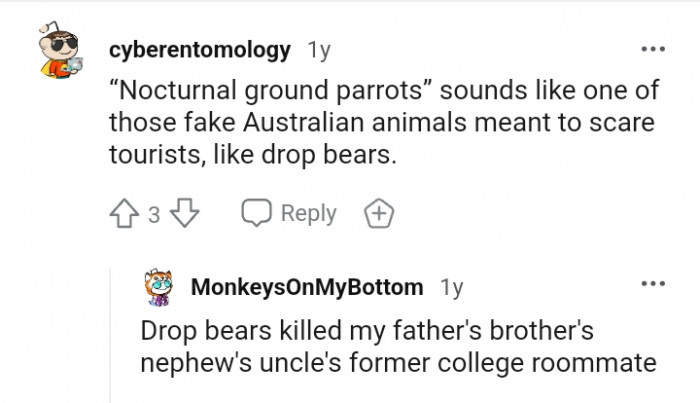
A decent bird name

There have been confirmed sightings and audio recordings

Practical Steps for Conservation Engagement
To inspire action, individuals and communities can participate in local conservation projects or wildlife monitoring initiatives. Research supports that direct involvement can enhance feelings of empowerment and connectedness to nature.
By actively participating in conservation efforts, individuals can contribute to the protection of endangered species while also fostering personal growth and emotional resilience.
How does one use a bird book?
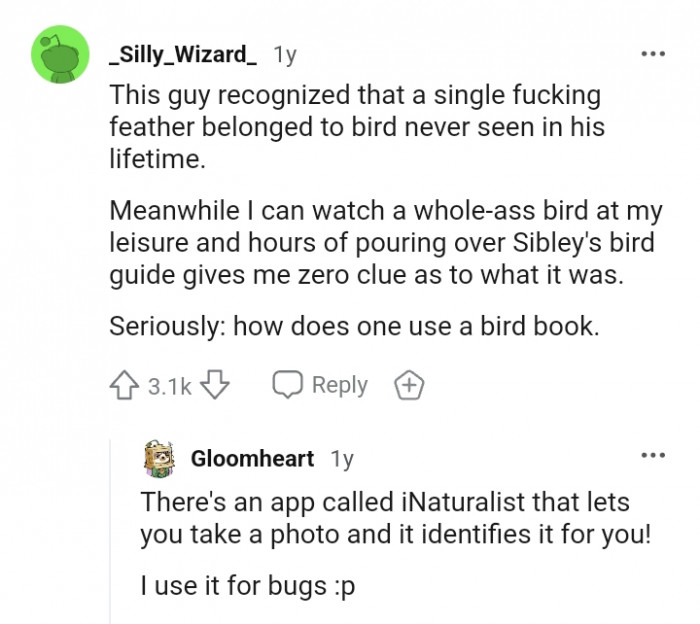
Some of his findings were found to be staged
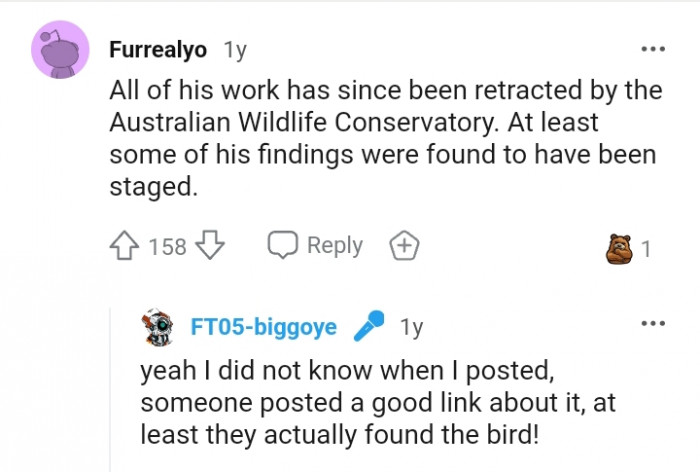
Ground Parrots stand zero chance
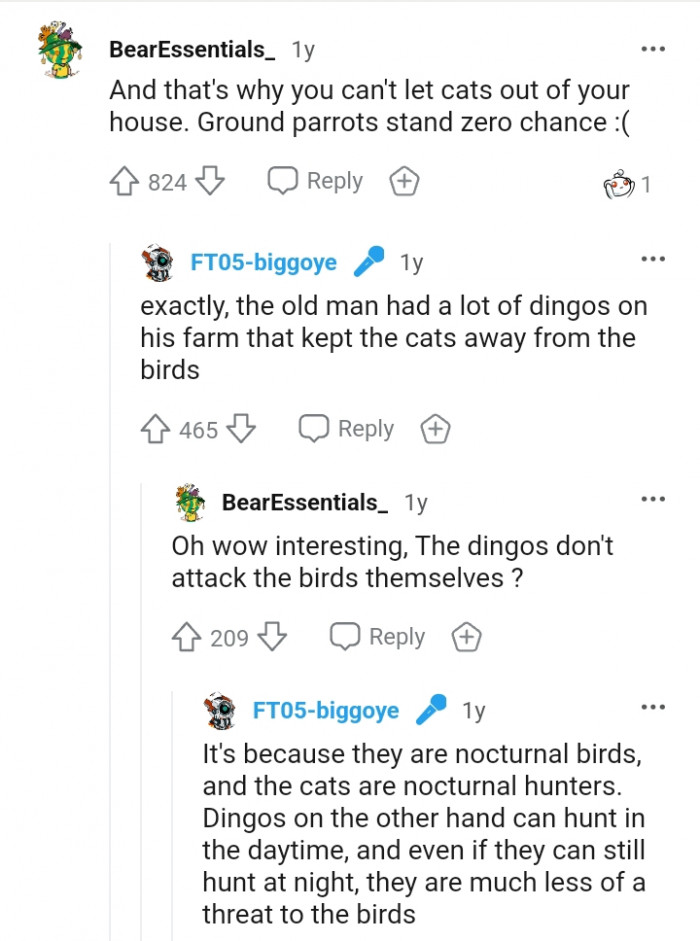
It's the respect for me

The second comment is really wild

It has never been found since
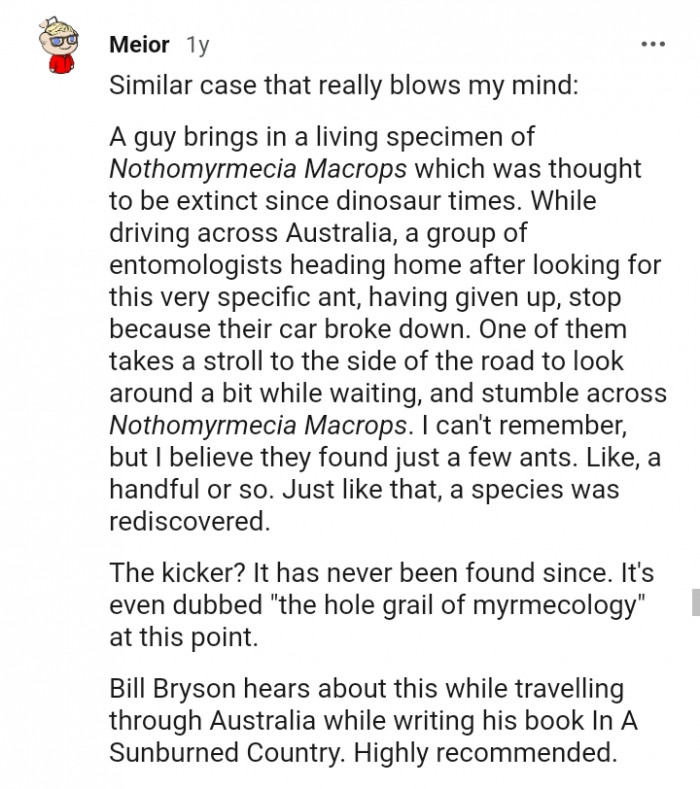
The first proof that they were not extinct

Access to the recently discovered habitat has already been restricted by the Queensland Parks and Wildlife Service, which has also taken steps to remove old cattle fences from the region and lessen threats like feral cats. The fragile bird can only be so well protected, but with a lot of luck and support, the Night Parrot—and the Kakapo, for that matter—might be on the verge of an amazing comeback.
Psychological Analysis
The rediscovery of this species serves as a powerful reminder of the resilience of nature and the importance of conservation. This event can inspire hope and underscore the need for ongoing efforts to protect our planet's biodiversity.
Analysis generated by AI
Analysis & Alternative Approaches
In summary, the rediscovery of the Australian nocturnal ground parrot underscores the interplay between psychology and conservation. By fostering emotional connections to wildlife and promoting proactive conservation efforts, individuals can contribute to a more sustainable future.
Ultimately, these efforts can enhance both individual well-being and the health of our ecosystems.



